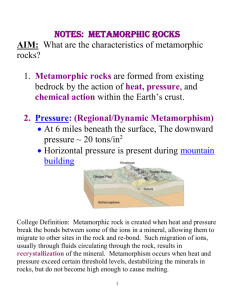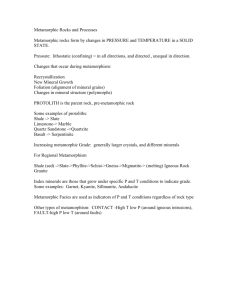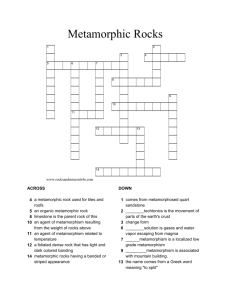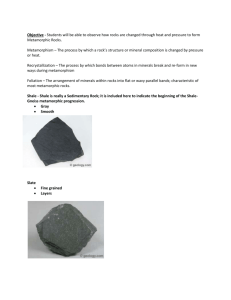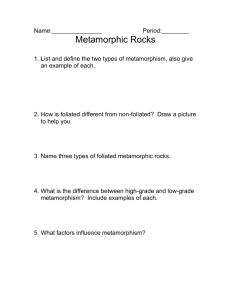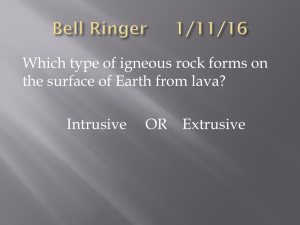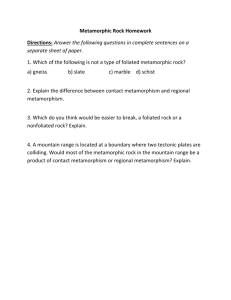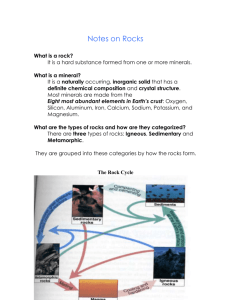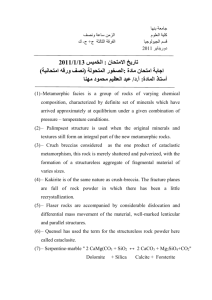Metamorphic
advertisement
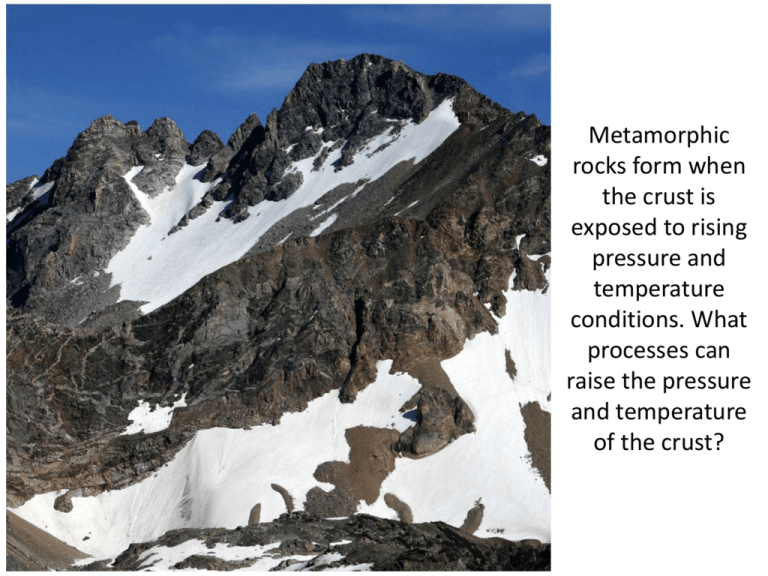
Metamorphic rocks form when the crust is exposed to rising pressure and temperature conditions. What processes can raise the pressure and temperature of the crust? Metamorphic Rocks Are Composed of Sedimentary, Igneous, or Metamorphic Minerals that Have Recrystallized. Marble from Carrara, Italy What Is Metamorphic Rock? • • Pre-existing sedimentary, igneous, or metamorphic rock changed to a new assemblage of minerals. Result of solid-state recrystallization of “parent rock” due to changing crustal conditions. Rocks Evolve through a Sequence of Metamorphic Grades … … conveniently “indexed” by Index Minerals Regional Metamorphism = stress = foliation Foliated texture is produced by directed stress related to regional metamorphism Shale is parent rock (protolith) Slate Fractures along parallel planes. Phyllite Parallel mineral arrangement. Schist - parallel to sub-parallel arrangement. Gneiss Minerals segregated into bands. Contact Metamorphism = thermal Limestone changed by contact metamorphism into marble and various types of minerals Contact metamorphism forms Quartzite Hornfels Marble Marble Hornfels Metaconglomerate Quartzite Anthracite Nonfoliated rocks may develop during regional or contact metamorphism In addition to heat and pressure, chemically active fluids transport heat and promote recrystallization Identify where you would find metamorphic rocks and their type. Igneous Granite/Rhyolite Diorite/Andesite Gabbro/Basalt Peridotite (Komatite) Sedimentary Conglomerate/Breccia Sandstone Shale Limestone Coal Metamorphic Slate Phyllite Schist Gneiss Hornfels Marble Quartzite Plate Movement Powers the Rock Cycle
